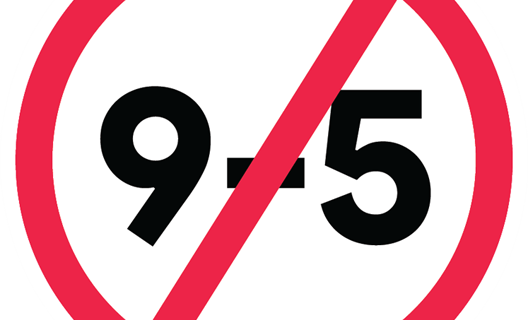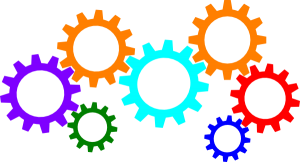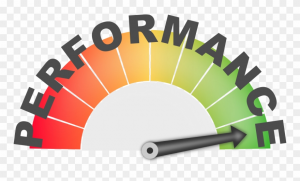Recognizing A Strong Leader
 If someone asked you, “what are the critical components of strong leadership”, what answer comes to mind? Maybe good listening skills or excellent communication would top the list. Or perhaps the ability to delegate and not micromanage. While all of those answers are spot-on, you may be surprised by one crucial component that’s often overlooked: self-reflection.
If someone asked you, “what are the critical components of strong leadership”, what answer comes to mind? Maybe good listening skills or excellent communication would top the list. Or perhaps the ability to delegate and not micromanage. While all of those answers are spot-on, you may be surprised by one crucial component that’s often overlooked: self-reflection.
If you’re in a leadership role, when was the last time you made an effort to focus on self-reflection? Or have you ever really done it or even figured out what it means? Self-reflection is taking some time to think about your thoughts, behavior, motivation and actions. The concept seems simple, but it can be surprisingly difficult to do. We’re always moving on to the next project, meeting or crisis without pausing to reflect on what happened earlier that day or that week. On the flipside, self-reflection is NOT about beating yourself up and getting stuck in the past. We can’t turn back time or erase a negative outcome, but we can learn from those experiences and change our behavior or leadership tactics moving forward.
So, why is self-reflection a key practice for leaders? It’s all about the 3 A’s: Awareness, Adaptability and Action. Let’s take a closer look:
- Awareness: Self-reflection helps leaders become aware of their strengths and weaknesses. That kind of awareness helps them better understand how they lead, teaches them to capitalize on their strengths and work on improving weaknesses.
- Adaptability: The practice of self-reflection enables leaders to gain insights from past projects, interactions and team dynamics. They’re better able to adapt, grow and respond to changes, conflicts and whatever else is thrown at them.
- Action: By practicing self-reflection, leaders learn to look at situations from a neutral perspective and set their own egos aside. This helps them see the big picture and take action where needed.
A consistent self-reflection practice pays off in so many ways for leaders and helps them:
- Set priorities and make better decisions
- Learn to use feedback for growth rather than taking it personally
- Maintain better relationships
- Communicate effectively by understanding how they come across to others
- Create a more honest and productive work environment
Taking the time to reflect has big benefits for both leaders and organizations. Yet many don’t recognize the value or know how to put it into action. That’s where working with a coach, like Leah M Joppy and Associates, can help leaders build a regular, ongoing self-reflection process. Leaders will learn how to ask effective types of reflection questions, receive personalized feedback and help set and achieve their goals. Ready to learn more? Call us at 301-670-0051 or email us at leah@lmja.com to learn more.
The Bests Ways To Practice Self-Reflection
 For such a useful practice, the self-reflection process is not something we know how to do intuitively. It’s not something we learn about in school and it isn’t part of most job training. Our work environments tend to focus on what to do next or how to do more. We’re shaped by “always moving forward” work cultures and we believe there’s no time to pause and reflect. Most of us don’t learn about the power of self-reflection until someone else, often a coach or mentor, guides us through the process.
For such a useful practice, the self-reflection process is not something we know how to do intuitively. It’s not something we learn about in school and it isn’t part of most job training. Our work environments tend to focus on what to do next or how to do more. We’re shaped by “always moving forward” work cultures and we believe there’s no time to pause and reflect. Most of us don’t learn about the power of self-reflection until someone else, often a coach or mentor, guides us through the process.
Self-reflection enables leaders to identify their strengths, weaknesses and areas for improvement. But how do you begin a self-reflection practice if it’s not something that you typically take the time to do? Here are a few suggestions:
Reflect regularly
Schedule 10 to 20 minutes a week for self-reflection. This should be blocked out in your calendar, so it’s a set time for you to quietly think and self-reflection becomes a regular habit. A quiet and calm place without distractions is ideal. For some, leaving the office environment helps clear the mind. Others may choose to arrive at the office 30 minutes earlier when it’s quiet, to reflect on the day or week ahead.
Develop a structure for reflection
Self-reflection can be overwhelming to begin with and particularly without a set focus. You may want to start with a single question or topic, such as the following areas:
- Week in review: What went well? What did you learn? What could you do differently?
- Highlights: What did you do well as a leader this day and/or week?
- Leadership: What type of leader do you want to be? Which leaders do you look up to? How does your team view you as a leader?
- Values: What are your core values? Do they align with your organization’s values?
- Team: What type of leader does your team need? Are there ways you could better meet their needs?
- Goals: What are the current goals of your organization? What needs to be done and are you on track? What do you need to do as a leader to meet these goals?
Write down your thoughts
Writing down thoughts and ideas down during self-reflection frees up space in your mind and gives you the opportunity to organize your thoughts. Plus, having a record of your self-reflective thoughts means that you can check back regularly and see your progress.
Encourage your team members to practice self-reflection
While self-reflection is important for leaders, your team can also find a lot of value in it. Encourage your team to regularly reflect on their own performance, as well as yours and make them feel comfortable sharing their insights with you.
Self-reflection is a humbling, but powerful technique that helps leaders (and team members) improve their performance. But it can be a tough process that makes you take an honest look at yourself: your strengths, your weaknesses, areas for improvement and how you should work to grow and develop. Leah M Joppy and Associates is ready to help you make self-reflection an important component of your leadership process. We can help you set goals and provide support and accountability. Contact us at 301-670-0051 or email us at leah@lmja.com to learn more.
Why Some Managers Are Resistant To Work Schedule Flexibility

For many organizations, work schedule flexibility is a new part of their compensation package. It’s a powerful tool in terms of employee engagement, retention and recruiting. Remote and flexible schedules have shown to not only provide employees with higher job satisfaction, but better health, less absenteeism, increased work-life balance and less stress. This is all well and good for workers, but what do managers really think about remote work? While many understand the appeal and benefits, it’s still difficult to embrace change and work through the challenges of managing a remote and/or hybrid team.
Here’s a look at 7 reasons why managers may be resistant to remote work:
- Lack of accountability and supervision: Sure, some team members work well (and in some cases better) working remotely. Then there are those that struggle with time management, distractions and other challenges. Managers may feel that it’s more challenging to supervise employees and keep them accountable when they’re not physically present in the office.
- Loss of collaboration: Face-to-face interaction is often believed to foster a more cohesive work environment. Some managers worry that remote work can make it harder for team members to truly feel like a team. This is of particular concern for new team members and younger workers who are just starting out in their career.
- Lack of company culture: Strong in-office culture can be a key component for an organization’s retention and recruitment. Managers may worry that remote work could be a hinderance towards building this culture.
- Increase in security concerns: There may be concerns about the security of data when employees are working outside the office.
- Decrease in productivity: Some managers may feel that team members are more productive in a controlled office environment. Working from home can potentially have more distractions and chances to break from a traditional work schedule.
- Concerns about equity: In some settings, not all roles can be performed remotely or on a hybrid schedule. Allowing some employees to work from home might create perceived (or actual) inequities among team members.
- Holding onto a traditional mindset: Some managers may still have a traditional view of work that involves all team members being present at a common workplace. Change is hard and personal experiences and beliefs take time to overcome, particularly when it comes to management practices.
As we discussed last month, an annual government-wide survey conducted by the Office of Personnel Management found that more than two-thirds of federal employees are still teleworking at least occasionally. Remote and hybrid work isn’t going anywhere, but neither are the management challenges if your organization doesn’t face them head on. Leah M Joppy and Associates can help you figure out your primary challenges and work with you and your team to make remote/hybrid working a more efficient, productive and collaborative experience!
Call us at 301-670-0051 or email us at leah@lmja.com to learn more.
Insights Into Working With Or Hiring Gen Z For Your Organization

Gen Z can seem like a mystery to many of us, whether you have one at home, you’re trying to hire a recent college graduate to work for your organization or you have a few on your team. Their attitude towards a traditional 9-5 schedule, desire for flexibility in order to create work/life balance and general frustration with “hustle culture” has made them question workplace norms. In most cases, they are not interested in continuing down the same path as older generations. And Gen Z is not afraid to voice their feelings and shake up the professional world – particularly on TikTok.
There’s no doubt Gen Z has seen their fair share of upheaval in the workplace. They’ve witnessed or been a part of the rise in remote work during the pandemic and the increasing abandonment of it throughout the last several months, as well as waves of layoffs as the economy slowed. They’re asking tough questions, like “does life have to be like this?” and they’re concerned about how to prioritize their health and wellness in a system they feel is unsympathetic to work/life balance.
If you’re interested in gaining some insight into the way Gen Z views today’s workplace, look no farther than TikTok. Here’s a look at a few of the top TikTok work trends that went viral over the last year:
- Quiet Quitting: Essentially this is “phoning it in”. Quiet quitting is characterized by employees putting in the bare minimum effort to keep their jobs, but not devoting any extra time or energy to their roles. Popularized on TikTok in 2022, quiet quitting refers to employees doing their jobs, but not “going the extra mile” or doing anything that falls outside of their job descriptions.
- Lazy Girl Jobs: This viral trend racked up millions of views after 26-year-old TikToker Gabrielle Judge shared it with her followers in May. Judge defines a “lazy girl job” as a flexible, remote position that’s non-technical, high-paying and doesn’t require extreme effort or difficult performance goals. She used examples of job titles like “customer success manager” and “marketing associate” that fit the “lazy” job category.
- Bare Minimum Mondays: “Bare Minimum Mondays” are another example of Gen Zers placing a priority on their health and wellbeing instead of the notion of being an “ideal employee”. Digital content creator and startup founder Marisa Jo Mayes went viral on TikTok when she shared her version of Bare Minimum Monday, essentially doing as little work as possible that day to minimize stress.
Whether you’re sympathetic to the views of Gen Z or feel these beliefs are self-entitled and out of touch, they still need to be considered in order to hire and retain a younger generation of workers. In fact, it’s one of the top challenges Leah M Joppy and Associates hears about from clients. How do we attract younger workers? And how do we keep them after they’ve started in a new position? We’ll examine what Gen Z is looking for in the workplace in our next article, but the first step towards recruitment and retention is learning and understanding more about this rapidly growing pool of workers. That’s where we can help by taking a look at your current hiring strategies and how to best tailor them to appeal to the younger generation of employees.
Ready to learn more? Call us at 301-670-0051 or email us at leah@lmja.com.
How To Attract Gen Z Workers

“She’s quiet quitting and rage applying to lazy-girl jobs.” That sentence may cause many of us to scratch our heads in bewilderment, but to Gen Z workers, it makes perfect sense. And with workplace hashtags like these going viral among Gen Z on TikTok, it makes managers wonder if it’s even possible to make younger workers happy.
So, who exactly is Gen Z? Often defined as people born between 1997-2012, they are more diverse, tolerant, educated and socially conscious than past generations, yet they also report higher levels of stress and mental illness. They’re also one of the largest generations, making up one-fourth of the U.S. population. In fact, they’re about to surpass millennials as the most populous generation on earth and have the potential to transform not just the job recruitment process, but also the industries they’re entering.
The big question is: What is Gen Z looking for in the workplace? Forget the massage chairs and ping pong tables. Gen Z is more focused on meaningful work with an emphasis on work/life balance. Our previous article about workplace TikTok trends is proof of that. Here’s a look at 5 of the top things younger job seekers are looking for at work:
- A competitive salary, but meaningful work is key: With rent, groceries and other essentials at all-time highs, Gen Z places a premium on a good salary. However, while salary is the most important factor in deciding on a job, Gen Z values salary less than every other generation. If given the choice of accepting a better-paying, but boring job versus work that was more interesting but didn’t pay as well, Gen Z was fairly evenly split over the choice.
- A strong benefits package: Along with salary, this is another key to keeping Gen Z employees satisfied at work. Health insurance should be just the start – you should also offer employee retirement plans, commuter benefits, and more. Throw in some free meals or snacks in the workplace and you’re really going to get their attention!
- Reasonable working hours: Gen Z is less willing than millennials to sacrifice work/life balance. Frequently asking this group to work more than their usual hours can be a real motivation killer and lead to workplace burnout. You don’t want a group of “quiet quitters” on your team.
- No micromanagement and toxic work environments: A study by Glassdoor showed Gen Z isn’t too enthusiastic about upper management. That means if you micromanage these workers, you’re likely to chase them out the door. They’re also very conscious of toxic work environments (ie- employees who are too afraid to ask questions, dismissive managers, etc.)
- A flexible work schedule: Even if you can’t keep your team remote all the time, it’s important to give Gen Z the option. For example, you could implement a policy that allows employees to work from home any time they don’t have in-person meetings. That flexibility can go a long way to keep them engaged at work.
Understanding the needs and wants of Gen Z can seem like a big learning curve. However, ignoring their workplace preferences can really put your organization at a disadvantage. As we pointed out, they’re poised to become a large block of the workforce in the coming years. Leah M Joppy and Associates is ready to help you hone your Gen Z recruitment strategy and will look at your current workplace environment, culture and more to make suggestions as to how you can attract younger team members. Call us at 301-670-0051 or email us at leah@lmja.com to learn more.
Overworked? Burned Out?
 Last month, the website FinanceBuzz released a study of the most overworked cities in the U.S. In the study, researchers looked at metrics such as:
Last month, the website FinanceBuzz released a study of the most overworked cities in the U.S. In the study, researchers looked at metrics such as:
- average number of hours worked per week,
- average commute time and
- percentage of workers who work 50+ weeks per year.
And the winner of the most overworked city is: Washington, D.C. If you’d like to take a closer look at the study and the methodology behind it, here’s a link.
We probably don’t need a study to tell us that the Washington region suffers from a severe case of “overwork.” So many of us feel like we’re doing the work of two or three people and juggling it all can seem like an impossible task. But very few people can keep going at a frantic pace and not experience some symptoms of overwork. A few of the most common symptoms are outlined below:
- Increased stress levels and physical symptoms: People may notice fatigue, headaches or gastrointestinal issues.
- Difficulty sleeping: Sleep behaviors may be disturbed, reduced or increased.
- Decreased productivity: When workloads increase, employees may struggle to keep up, resulting in missed deadlines and making more mistakes.
- Procrastination: Some employees may resort to avoidance and procrastination as a way to deal with overwhelm.
- Increased absenteeism: Increased workloads can cause employees to take more sick leave to deal with stress.
- Decreased job satisfaction: When workers feel overwhelmed and overworked, they may lose motivation and become disillusioned with their jobs. This can often lead to higher rates of turnover, particularly in a competitive job market.
Although they’re similar and often used interchangeably, overwork and burnout are not the same. Overwork refers to the act of working too hard or too much. The term “burnout” was first used in 1974 by German-American psychologist Herbert Freudenberger, who defined it as “the physical or mental collapse caused by overwork or stress.” The key is to identify any symptoms of overwork you may be experiencing (the earlier, the better!), so you can prevent burnout.
Prolonged periods of overwork can begin to take a toll on our mental and physical health, as well as personal relationships. When we overwork and fail to prioritize our own needs and self-care, we don’t give our brain or body what it needs to recuperate. In our next article, we’ll take a look at a few ways to handle increasing workloads. If you notice that your workload is starting to negatively impact your life, working with a coach, like Leah M Joppy and Associates, can be incredibly beneficial. We can help you achieve the balance you’ve been striving for, both professionally and personally, before your day-to-day stressors lead to burnout. Contact us at 301-670-0051 or email us at leah@lmja.com to learn more.
Handling Increasing Workloads
 Steadily increasing workloads may seem like a harsh reality in today’s workplace. Technology ensures that we’re available 24/7. Working from home can make it hard to unplug and create a work/home balance. Falling into the routine of overwork is easy, but getting yourself out of it can feel like an uphill task. However, it’s not impossible and your mental and physical health may depend on it.
Steadily increasing workloads may seem like a harsh reality in today’s workplace. Technology ensures that we’re available 24/7. Working from home can make it hard to unplug and create a work/home balance. Falling into the routine of overwork is easy, but getting yourself out of it can feel like an uphill task. However, it’s not impossible and your mental and physical health may depend on it.
No one is equipped to go at lightning speed without suffering some mental and/or physical repercussions, whether it’s right now or down the road. We outlined a few symptoms of overwork in our last article. Perhaps you’re dealing with one or more, but feel helpless and wonder if there’s anything you can do about it. Here are 6 suggestions to keep in mind:
- Minimize distractions and identify time-wasters: Suggestions include checking e-mail only a few times a day, staying off social media, using earphones if you work in a loud environment and setting clear boundaries if you work from home with family members in the house.
- Make lists and establish priorities: Write down everything you need to accomplish in a given day and then assign each task a priority. Project managers often use the 4Ds of time management: Do, Delegate, Delay and Drop. Checking off tasks as you complete them can also give a sense of accomplishment. It’s a small, but powerful step!
- Delegate where you can: So many us get in the mindset of, “Oh, it’ll be quicker and easier if I just do it myself.” This is particularly true of new managers. However, if you’re in a position to delegate tasks, do it! There is a limit to what one person can do.
- Sit down and talk with your manager: If you feel comfortable, enlightening your manager about your situation can help you both come up with strategies. But don’t just walk into their office without a plan. Ask yourself if your current workload is acceptable for your role and job description. Come in with your list of priorities to share. And propose a solution you can both discuss.
- Pursue hobbies outside of work: A hobby not only brings fulfillment, but also makes your brain think in different way and takes your mind off your job. If you work remotely, try to pursue a hobby that gets you out of the house.
- Prioritize wellness into your routine: We’re talking exercise, breathing techniques, meditation, anything that helps calm and recharge you.
And remember, you don’t have to go through this alone. Working with a coach, like Leah M Joppy and Associates, can help you chart a clearer path forward. We’ll discuss your unique situation, strategies for dealing with your increasing workload and help you establish possible solutions and clear boundaries. The key is to get ahead of your workload situation before it leads to burnout.
Ready to learn more? Call us at 301-670-0051 or email us at leah@lmja.com.
How Your Organization Can Attract Millennial and Gen Z Employees
 Finding the right employees can be tough, but keeping them can be even tougher. In 2022, 46.2 million workers voluntarily quit their jobs, becoming what’s now known as The Great Resignation. And it’s estimated that 46% of the American workforce wants to switch jobs in 2023, making employee retention a key concern. Now more than ever, organizations need to come up with fresh approaches to retain their current workers. This is especially true of Millennial and Gen Z employees.
Finding the right employees can be tough, but keeping them can be even tougher. In 2022, 46.2 million workers voluntarily quit their jobs, becoming what’s now known as The Great Resignation. And it’s estimated that 46% of the American workforce wants to switch jobs in 2023, making employee retention a key concern. Now more than ever, organizations need to come up with fresh approaches to retain their current workers. This is especially true of Millennial and Gen Z employees.
Let’s take a look at these two groups. Millennials were born between 1981 and 1996 while Gen Z refers to those born between 1997 and 2012. Between the two of them, they make up almost 50% of the workforce today. Gen-Z alone is expected to form 27% of the workforce in the next two years. Both Millennials and Gen Z have a reputation for job hopping and lacking “company loyalty”. However, if organizations make an effort to understand the needs and wants of these two groups and grant them the opportunities to grow and thrive, this reputation isn’t always true.
Your recruitment strategies may have helped you acquire a new crop of employees, but if they are not rewarded appropriately with career opportunities, development and other incentives, there is a larger risk of them leaving. What are some of the top things that Millennials and Gen Z look for in an employer? Here’s a glimpse at 5 of them:
- Offer them flexibility and work-life balance: Some may bristle at the work-from-home or hybrid model, but it’s here to stay. Gen Z and millennial employees value flexible work places and working practices and are interested in jobs that will be adaptable to their lifestyle.
- Place an emphasis on their well-being: Millennials and Gen Z want to work for organizations who take care of them and their health as individuals. And it’s not just about physical well-being, but mental health as well.
- Provide them with strong, transparent managers: Management really matters! Grant these two groups more autonomy and less micromanagement, communicate openly and seek their input and ideas.
- Invest in their growth: Gallup found that 87% of millennials rate development opportunities as important to them in a job and LinkedIn found that 76% of Gen Z say learning is key to their success.
- Provide them with mentors: A study by CNBC found that 90% of employees who have assigned mentors say they are happy in their jobs. And greater employee satisfaction leads to better retention!
In today’s multigenerational workforce, organizations can no longer rely on a one-size-fits-all approach to retaining and motivating employees. The most successful organizations truly understand employees’ expectations in the workplace. Leah M Joppy and Associates can work with your organization to build an effective employee retention strategy and help you create programs, systems and communication styles that they meet different employee needs, whatever generation they are from.
Ready to learn more? Call us at 301-670-0051 or email us at leah@lmja.com.
The Composition Of An Effective Team
 Have you ever been a member of (or led) an exceptional workplace team? What are some of the positives that come to mind? Was it engaging and collaborative? Did you meet and exceed your goals? Did everyone feel valued and appreciated? It’s a great feeling, isn’t it? Yet all too often, teams fall short of being as effective as they can be and reaching their potential. The impacts are felt by employees, leaders and organizations as a whole.
Have you ever been a member of (or led) an exceptional workplace team? What are some of the positives that come to mind? Was it engaging and collaborative? Did you meet and exceed your goals? Did everyone feel valued and appreciated? It’s a great feeling, isn’t it? Yet all too often, teams fall short of being as effective as they can be and reaching their potential. The impacts are felt by employees, leaders and organizations as a whole.
So, what exactly do we mean by an “effective team”? It’s the capacity of a group of people, usually with complementary skills, to work together to achieve its goals and objectives. And it’s one of the biggest indicators of an organization’s success. According to Gallup, teams that rank in the top 20% for connectedness see 41% less absenteeism, 59% less employee turnover and a 66% increase in employee wellness. With numbers like that, it’s hard to argue that high performing teams are an integral part of your organization and worth the investment to develop and nurture.
Teams are as varied and unique as the people within them, but when it comes to effective, high performing teams, there are some common characteristics:
- Clear, achievable goals
- A shared commitment
- Clarity of roles and responsibilities
- A sense of purpose
- Clear processes and procedures
- Joint accountability
- A result-oriented approach
Effective teams also tend to show greater resilience by working through challenges and bouncing back from adversity. They also tend to maintain vitality and the energy needed for future success.
It’s no surprise that an effective team is only as strong as the person leading it. In our next article, we’ll get into more about what it takes to lead a high-performance team. The right leadership enhances a team’s success, but far too often, people are placed in leadership roles without any proper leadership development training. It’s vital for leaders to take advantage of every opportunity to enhance their leadership skills. However, it’s also vital for organizations to provide these opportunities in the first place. Working with a coach like Leah M Joppy and Associates can help your leaders identify their strengths and weaknesses and develop the skills needed to build effective teams (strong communication, building trust and resiliency, defining roles and responsibilities and so much more).
Do you want to lead a high performing team, but don’t know where to start? Contact Leah M Joppy and Associates at 301-670-0051 or email us at leah@lmja.com to learn more and get started.
Top Five Suggestions For Leading An Effective Team
 Today’s leaders often feel like they’re in a never-ending game of tug-of-war. Between dealing with day-to-day obstacles, managing projects and team members, it can be overwhelming. The “people” component is certainly the most integral to an organization and can prove to be the most challenging. Building a high-performing team is more than just putting together a group of talented people with the right skills. It requires careful development of each member’s unique talents and characteristics.
Today’s leaders often feel like they’re in a never-ending game of tug-of-war. Between dealing with day-to-day obstacles, managing projects and team members, it can be overwhelming. The “people” component is certainly the most integral to an organization and can prove to be the most challenging. Building a high-performing team is more than just putting together a group of talented people with the right skills. It requires careful development of each member’s unique talents and characteristics.
There is so much strong leaders can do to build effective, high-performing teams. Here’s a look at the top five suggestions. But remember, it’s a marathon and not a sprint. It’s a continuous process and not a “one and done” task:
- Establish meaning and purpose: It’s a leader’s job to help employees and teams find meaning in their work. To increase productivity and motivation, have discussions about the “why” of your team’s tasks. Team members who are passionate and motivated help drive team effectiveness because they understand how their work contributes to the organization’s overall objectives.
- Define roles and responsibilities: Leaders must ensure that everyone on the team knows exactly what is expected of them. It reduces confusion and conflict and allows teams to work more efficiently. Role clarity also enables leaders to hold team members accountable for their performance and identify areas where someone may struggle.
- Communicate effectively: Effective communication and effective leadership are definitely intertwined and it can make, or break, a team. As a leader, it’s vital to: practice active listening and allow people to give constructive feedback without fear of repercussions; ask questions and don’t be defensive; have an open-door policy; follow through with actions.
- Focus on building relationships: Building relationships helps to create (or reinforce) an organization’s values and culture. Once leaders and team members genuinely trust and respect each other, regular, open dialogue about individual and team performance increases team effectiveness.
- Provide productive, specific and timely feedback: Feedback is critical to improving performance, but how you deliver it can make a big difference. Productive feedback enables team members to see their successes and missteps and grow from the experience.
To build high-performing teams, organizations must cultivate high-performing leaders. People skills typically account for 80 percent of success in a leadership role. Yet many people are promoted into leadership because of their technical capabilities, without mastering the skills of managing and motivating others. Without these basic skills, leaders at every level can struggle with building high-performing teams. Leah M Joppy and Associates understands the challenges that accompany leadership roles and knows the proven techniques for building strong leaders who can build motivated, productive teams.
Ready to learn more? Call us at 301-670-0051 or email us at leah@lmja.com.